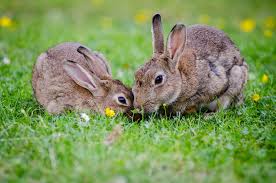
Introduction
It is well known that every single pet suffers from stress one way or another. Stress comes in many ways and starts manifesting as declining appetite. If you notice your rabbit isn’t eating, this can quickly become very alarming. An appendicitis is a surgeon’s nightmare pet owners do face which can be a result of appetite loss. After a ten hour mark, if they stop eating, professional help needs to be sought. Using this guide, you will uncover the reasons why any pet loses appetite, including but not limited to arousal symptoms and steps you can take to remedy them. The sign that your rabbit is in trouble in most cases is obesity.
The Unique Need For A Constant Supply of Food For A Rabbit A rabbit’s digestive system flourishes when high-fiber food is regularly supplied. Gastrointestinal (GI) Stasis, which is quite possibly one of the deadliest complications, can occur with any sort of interruption in food intake. As the name suggests, GI Stasis is a condition that is stimulated by digestion slowing or stopping which results in a buildup of gas and bacteria.
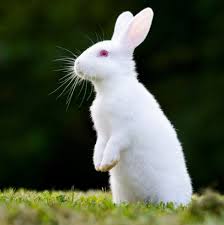
Key Factors That Might Cause Your Rabbit To Stop Feeding Include:
- Gastrointestinal (GI) Stasis
Gastrointestinal Stasis is characterized by slowed or absent digestion. It can signal other conditions underneath. Other signs, such as decreased energy levels, decreased or absent appetite, and signs suggesting abdominal pain are common. Dehydration, improper diet, stress, and pain are all known causes of GI Stasis.
- Dental Diseases
Because a rabbit’s teeth grow constantly throughout its life, dental diseases are common. Other common dental issues include malocclusion, and tooth overgrowth. Overgrown teeth can make it painful to eat, particularly tougher foods such as hay. Prevention, through regular veterinary dental examinations, is critical.
- Pain-associated Appetite Loss
Pain associated with injuries and chronic issues like arthritis, GI discomfort, or urinary infections profoundly reduce a rabbit’s appetite. Timely intervention from a veterinarian to resolve pain problems is necessary to maintain good health and avert GI Stasis.
- Stress and Anxiety
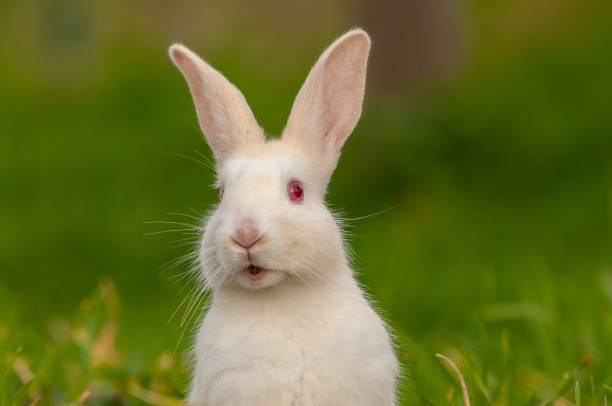
In contrast to many other animals, rabbits are extremely sensitive. Stress-related appetite loss makes it much harder for them to thrive. Loud sounds, new places, and abrupt changes to a routine can all temporarily cause appetite loss. Stress can be significant thus leading to these rabbits eating less. Having a stable environment is key and crucial for normal eating.
- Shifting dietary habits
Rabbits have a very delicate digestive system and any abrupt changes to their diet can disrupt their balance. New food items should be blended with their existing diet so that they can adapt easily. Strong shifts in dietary patterns can cause temporary loss of appetite or in severe cases, complications in the digestive system.
- Inflammation and Sickness
Some types of infection like, respiratory sickness or infection of the gut, can lose the appetite of rabbits. Coughing, driving mucus from the eyes or nose, and diarrhea are some possible signs that require immediate professional care.
- Worms and Mites
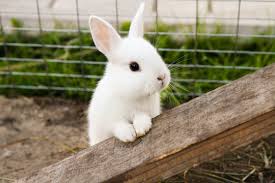
Loss of appetite and some level of discomfort can arise due to certain parasites which includes mites and some other worm type found within. A healthy and well-fed rabbit is a result of proper and regular preventive measures and treatments againts these.
Indicative Signs to Monitor Closely
The chances of recovery increase with timely identification of the arising issues. Thus, keep an eye on your rabbit for these symptoms:
Sustained lack of appetite (more than 10 hours)
Change in dropping behavior (amount, frequency, or consistency)
Decreased activity and increased sluggishness
Pawing at body parts suggestive of pain, hunched back, or tense/pain-filled abdomen.
Discharge from the nose and eyes.
Becoming irritable or aggressive more than usual
Reduction in body weight.
Altered ability to chew or eating leads to food falling from the mouth.
Steps to Take Immediately That’s Meant to Your Rabbit’s Rescue
Try using a treat as a first option.
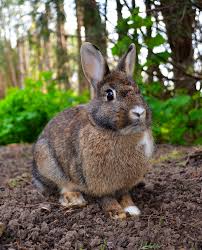
Presenting a widely accepted treat or veggies help determine the severity of appetite loss. An appetite would tell us their ailment isn’t too concerning, but if one expects otherwise, it means troubles definitely require attention.
Simethicone Administration
Minor gas and general discomfort are dealt with Simethicone (baby gas drops), so it can be given handsomely. A dosage of 1mL is effective, and vending every hour for a period of three hours would not be detrimental either. If any discomfort is proceeding however, immediate vet consultation is a must.
Water & Food Sources
Plain water with no funny angles will help the rabbit retrieve the water. Placing low leafy greens will raise the chances of food intake as well too. Hence, problem would be avoided before it arises. Severe complications can be prevented.
Mild gas symptoms and mild discomfort can also be solved by a soft rub, and along those lines, gentle rubs have been known to relieve discomfort as well.
A soft circular massage around the belly for a couple minutes can be fruitful in the sense mentioned above.
Veterinary Procedures and Treatments
If home remedies are ineffective and the patient’s condition worsens, immediate veterinary intervention becomes an absolute necessity. Common practices may include:
Administering intravenous fluids for hydration.
Providing pain relief medications.
Giving motility medications for enhanced stimulation of the digestive process.
Providing anti-infective or anti-parasitic treatment if infections or parasites are present.
Performing required Dental treatments for the existing dental disorders.
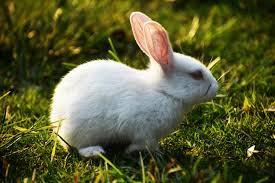
A Brief History and The Technical Aspects Of Rabbit Care
Rabbits were domesticated from the European wild rabbits, which had been hybridized for several centuries. As a result, rabbits have peculiar health issues they suffer from. Rabbits make use of hindgut fermentation, a process that greatly depends on the constant provision of fiber. Historical context shows that diet, environment, and preventive measures are critical for the healthcare of rabbits.
Design Philosophy of An Optimal Rabbit Diet
For optimal nutrition, rabbits require about 80% of hay, 10-15% of leafy greens, and 5% of pellets. This ensures adequate fiber to be ingested and consequently digested, enhancing the rabbit’s dental health. Nowadays, rabbit food products endeavor to replicate natural diets to ameliorate the digestive needs of rabbits.
Preventive Measures to Enhance Health of Rabbits in the Long Term
Long-term care of rabbits entails proactive and preventive measures which include the following:
Scheduling constant check-ups with the veterinarian for timely detection and management of underlying health issues.
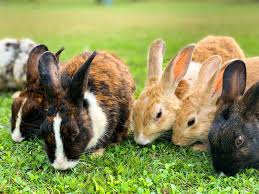
Adhering to a well-structured and fibre-rich nutrition plan.
Gradually changing shifting the nutrition plan during a set time frame.
Managing stressors by mitigating changes to the environment or routine.
Providing timely preventative maintenance treatments.
Conducting routine grooming and dental maintenance.
Caring for Emotional and Environmental Factors
Rabbits are socially and behaviorally sensitive indicating that emotional and their surrounding environmental factors greatly influences health and appetite. Daily interaction alongside a reliable timetable improves the overall welling (health) of rabbits.
Closing Statements
Intervening at any stage of loss of appetite in rabbits greatly improves their survival rate. Determining the underlying issues and identifying prompts coupled with timely home care management alleviates the majority of concerns. Still, knowing when to engage a veterinarian remains essential. Add these elements into the mix along with a suitable environment, the complex biology of rabbits, and preventive strategies and nurture the long-term health and happiness of your pet rabbit.

